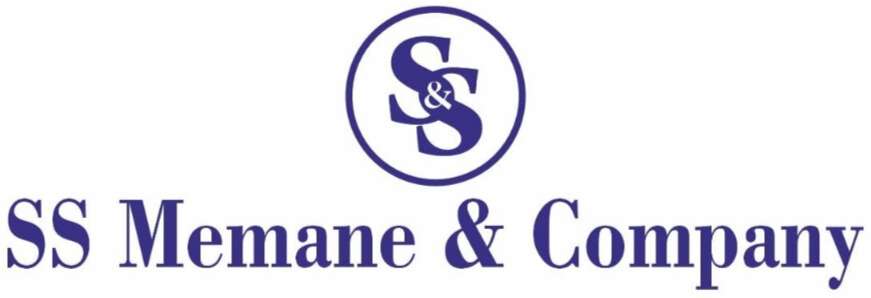TDS and TCS Registrations
Quick Contact
Documents Required
- Pan Card
- Bank Account Details
- Aadhaar Card
- Business Address Proof
- GSTIN (if applicable)
TDS and TCS Registrations
Tax Deducted at Source (TDS) and Tax Collected at Source (TCS) are mechanisms implemented by the Indian government to collect tax at the source of income or transaction. Both systems ensure that tax is collected in advance and helps the government prevent tax evasion.
- TDS is applicable when certain payments such as salary, interest, commission, rent, etc., are made by a company or individual. The payer deducts tax at the prescribed rate and remits it to the government on behalf of the payee.
- TCS is applicable when specific goods are sold, or certain services are provided. The seller collects tax from the buyer at the time of sale and deposits it with the government.
Advantages :
Timely Revenue for Government:
Ensures that the government receives tax revenue throughout the year rather than waiting for the end of the financial year.
Ease of Compliance:
Standardized procedures for TDS/TCS deductions and deposits make it easier for businesses to comply with tax regulations.
Reduces Tax Evasion:
Helps in minimizing tax evasion by ensuring that tax is deducted or collected at the point of income generation or sale.
Credibility and Trust:
Businesses with TDS/TCS registration are seen as compliant and credible, enhancing trust with customers and stakeholders.
Avoidance of Penalties:
Timely registration and compliance with TDS/TCS obligations help avoid penalties and interest that may be imposed for non-compliance.
Disadvantages:
Administrative Burden:
Requires regular filing of TDS/TCS returns and maintaining detailed records, which can be time-consuming.
Cash Flow Impact:
Immediate deduction or collection of tax can affect the cash flow of businesses, especially those with tight margins.
Penalties for Non-Compliance:
Non-compliance with TDS/TCS rules, such as late filing or non-payment, can attract significant penalties and interest.
Complexity for Small Businesses:
Small businesses may find the TDS/TCS registration process and compliance requirements complex and burdensome.
Ongoing Compliance:
Requires continuous monitoring and compliance with changing tax rates and regulations, which can be challenging.
Required Documents:
PAN Card:
PAN card of the business or entity applying for TDS/TCS registration.
Address Proof:
Proof of address of the business, such as utility bills, lease agreement, or bank statement.
Incorporation Certificate:
Certificate of Incorporation or Registration Certificate for companies, LLPs, or firms.
Identity Proof:
Identity proof of the authorized signatory, such as Aadhaar card, passport, or voter ID.
Bank Account Details:
Details of the business’s bank account, including a canceled cheque.
Authorized Signatory’s Details:
Personal details of the authorized signatory, including PAN, Aadhaar, and contact information.
Registration Process
Obtain TAN (Tax Deduction and Collection Account Number):
The first step in registering for TDS or TCS is to obtain a TAN from the Income Tax Department. TAN is a unique 10-digit alphanumeric number required for TDS/TCS filings.
Submit Form 49B:
Application for TAN can be made online or offline using Form 49B, available on the NSDL website or at TIN Facilitation Centers.
Receive TAN Allotment:
After processing the application, the Income Tax Department will allot a TAN, which must be quoted on all TDS/TCS returns and payments.
Register on TRACES:
Register your TAN on the TDS Reconciliation Analysis and Correction Enabling System (TRACES) portal for filing TDS/TCS returns, downloading TDS certificates, and managing compliance.
Start Deducting/Collecting Tax:
Once registered, start deducting TDS or collecting TCS at the applicable rates and deposit the tax with the government within the prescribed timelines.
File TDS/TCS Returns:
File quarterly TDS/TCS returns in the prescribed formats, detailing the deductions or collections made during the period.
Issue TDS/TCS Certificates:
Provide TDS/TCS certificates to the deductees or collectees, which they can use to claim tax credits.
Eligibility Criteria
Entities Required to Deduct TDS:
Companies, LLPs, and Firms: Any company, LLP, or firm making specified payments like salaries, interest, rent, etc., must deduct TDS at the applicable rates.
Individuals and HUFs (Hindu Undivided Families): Individuals and HUFs subject to tax audit are required to deduct TDS.
Government Entities: Government departments and agencies making payments to contractors, professionals, or other specified payments must deduct TDS.
Trusts, AOPs (Association of Persons), BOIs (Body of Individuals): These entities are also required to deduct TDS on specified payments.
Threshold Limits:
TDS is required to be deducted only when the payment amount exceeds the prescribed threshold limits under various sections of the Income Tax Act.
Eligibility for TCS Registration
Entities Required to Collect TCS:
Sellers of Specified Goods: Businesses selling specified goods like liquor, timber, scrap, etc., are required to collect TCS from the buyer at the time of sale.
Providers of Specified Services: Providers of specified services, such as parking lots, toll plazas, etc., must collect TCS from the service user.
E-Commerce Operators: E-commerce operators must collect TCS on the gross amount of sales made through their platform.
Threshold Limits:
TCS is required to be collected only when the transaction amount exceeds the prescribed threshold limits under various sections of the Income Tax Act.
- Copyright 2024 © SS Memane || Designed By || Mr. Sunil Memane


